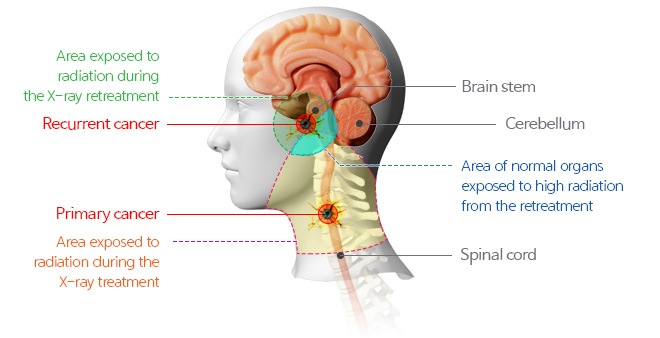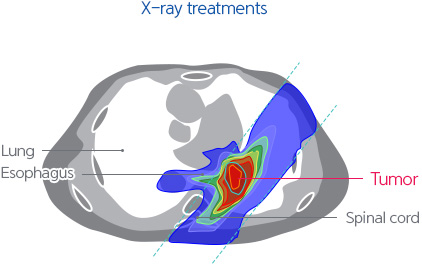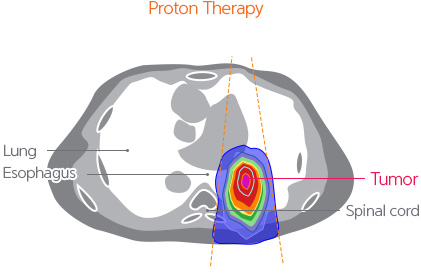Proton therapy for recurrent cancer
We would like to introduce the details of proton therapy for recurrent cancer.
- 01.
- If recurrent cancer appears on the radiotherapy treated site, can it be treated with the proton treatment?
If cancer reoccurs on the previously radiotherapy treated site, a sufficient amount of radiation transfer may be a concern due to exposing radiation to the nearby tissues which may cause side effects.
-
In the case of recurrent head and neck cancer after the radiotherapy
There are many cases that have been reported where radiation retreatment is needed in places difficult for surgery. However, radiation retreatment reported severe Grade 4 side effects in 20% of the patients.

[This increases the possibility of side effects to normal organs.]
-
In the case of recurrent rectal cancer after radiotherapy
In the case of recurrent rectal cancer after radiotherapy, retreatment with radiation showed substantial treatment effects. However, side effects associated with retreatment were common. Reoperation reported high removal rates, however, it was associated with a disadvantage of having an operation range that was too large.
- Similar to the above cases, when radiation retreatment is needed in difficult places with concerns associated to exposing radiation to the surrounding normal tissues, proton treatment may be the best alternative.
- 02.
- If recurrent cancer appears at the radiotherapy treated site, what are the advantages of treating it with proton treatment?
-
With proton treatment, radiation exposure to the surrounding normal tissues can be minimized. Therefore, even if the patient has received radiotherapy previously, the patient can be treated again with high radiation through the proton treatment. As a result, a patient can hope for not only an enhancement of the disease, but a full recovery.

 [Proton Therapy compared to the X-ray treatments to treat recurrent cancer]
[Proton Therapy compared to the X-ray treatments to treat recurrent cancer]
- 03.
- What are the effects of the treatment?
-
There is an increase in the need for radiation retreatment. However, retreatment is not being conducted due to risks of side effects. Even in the case it is implemented, a sufficient level of radiation is not being applied due to risks of side effects.
However, proton treatment minimizes radiation exposure to the normal organs, and therefore, it can be treated with the objective of a full recovery.
This has been proved in many comparative analysis studies and even in actual cases, development of side effects associated to radiation were uncommon after receiving proton treatment.



